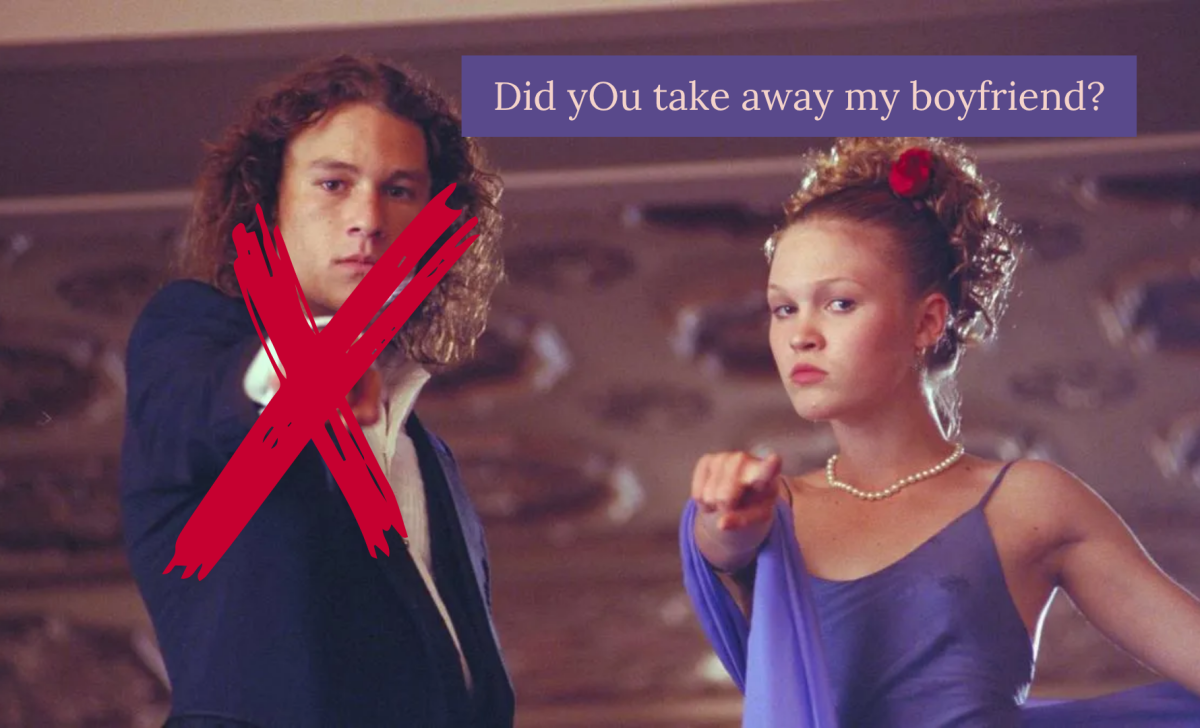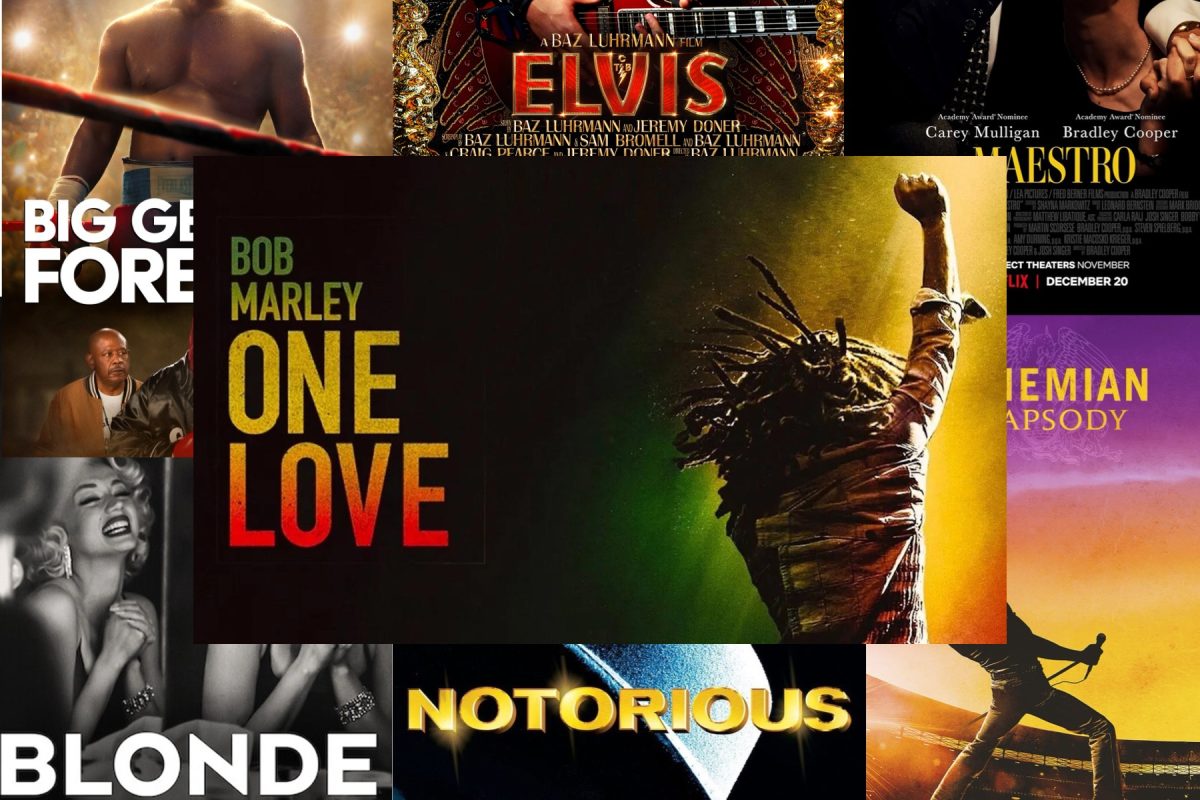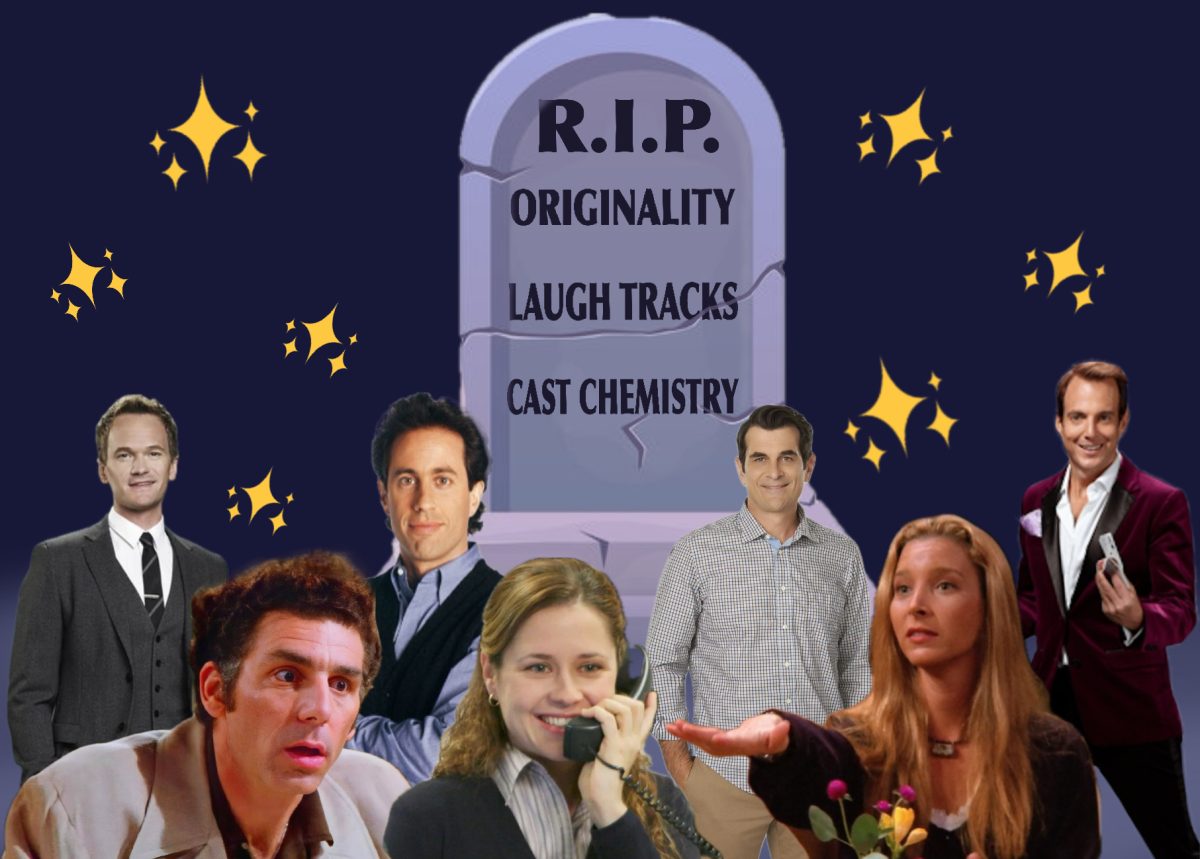Biopic movies typically dramatize the life of an individual in the real world. They show the lives of celebrities and non-fictional people who made a difference. Some of the most well-known include “Elvis,” “Big George Foreman” and most recently, “Bob Marley: One Love.”
Finding the balance between authenticity and entertainment in biopics can be tricky. Authenticity lets the viewer fully understand the artist and takes away any misconceptions they previously had. On the flip side, entertainment keeps the viewer engaged and draws in money to the industry. Notably, “Big George Foreman” has more Hollywood and amusement aspects, while “Bob Marley: One Love” recently sparked debate on the casting of Marley. These movies brought attention to the wider issue that comes with biopics. Authenticity shouldn’t come with a price, it should be a given, but some producers focus on the entertainment aspect more.
In “Big George Foreman,” George Foreman himself thought he wasn’t portrayed in the right way. Foreman did not have any major role in writing the script for his biopic, but his life story led to the movie. This resulted in Foreman believing they made him look too “mean” and therefore, taking away the authenticity of the movie.
In “Bob Marley: One Love,” Marley was played by a well-known non-Jamaican actor, Kingsley Ben-Adir, but critics argue that he should have been played by a Jamaican actor in order to make it more realistic. Looking past the opinions on “Bob Marley: One Love,” directors did try their best to get all of the tiny details of Marley’s life down. CBC News even claimed the directors coached Ben-Adir, who plays Bob Marley, on everything including his accent and how many steps he took when walking up stairs.
A couple days after it came out, Senior Holden Booher watched “Bob Marley: One Love.” Although it was a little hard to follow at times, Booher was able to understand Marley’s impact on peace, unity and hope around the world. The movie attempted to celebrate Marley’s life and what he accomplished, which Booher thought directors did a great job of.
“The producers of the movie were his two children and his wife, so they were able to maintain some authenticity when creating the movie,” Booher said.
Since Marley’s family was able to be heavily involved in the creation of his biopic, it enhanced the authenticity of his life in the movie by highlighting specific parts such as how Marley met his wife(s) and his tough relationship with his father. CBC News also said it took until 2018 for Ziggy and the rest of the Marley family to find a script that gave them a reason to tell his story.
Senior Jimmy Hughes was also able to see the biopic and thought they did a good job with showing Marley’s life, from what he knows it as.
“You can see the adversity that Bob Marley went through,” Hughes said, “and seeing the crowds that he performed in front of showed the impact that his music had on people.”
A biopic based on a celebrity can change their entire life by guiding viewers to see the artist in a specific light, which can lead viewers to think certain things about celebrities; the problem is that certain things said in the biopic can affect their image, whether the facts are authentic or not. It’s important for biopics to allow “raw” and “real” details of a celebrity’s life into the film. Hiding facts about them or only showing a fake persona also has an effect on the watcher. It can show deformed images and change what someone thinks they need to do to make an impact as well.
Senior Amara Diliberto has watched some biopics and found one thing in common with each one of them. In the end, the best biopics should leave the watcher with a different perspective on either the celebrity or the issue.
“The biopics that are more authentic and have a powerful message always impact me the most,” Diliberto said.
Biopics still need to be entertaining, since they are movies and are meant to make money. However, the balance between authenticity and entertainment is hard to reach and oftentimes leans one way more than the other. It’s a constant struggle for producers and the artists themselves.
“The authenticity part is even more important because it helps viewers understand the character more,” Booher said, “but there needs to be some entertainment so that it pulls in viewers to share the message.”
































